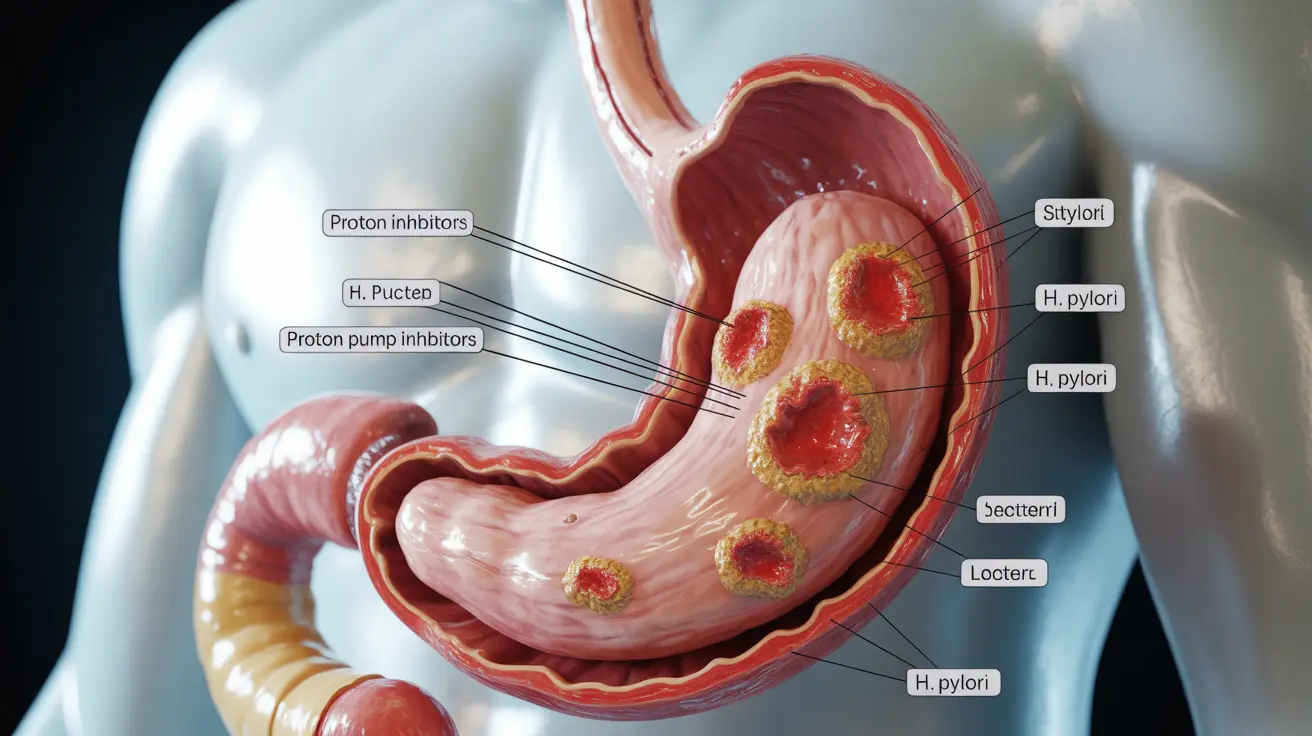Stomach ulcers can cause significant discomfort and interfere with daily life, leading many sufferers to seek rapid relief. Understanding the most effective and quickest treatment approaches is crucial for anyone dealing with this painful condition. This comprehensive guide explores the fastest evidence-based methods to cure stomach ulcers while considering various causes and treatment options.
Understanding Stomach Ulcers and Their Causes
Before exploring treatment options, it's essential to understand that stomach ulcers, or peptic ulcers, typically develop due to two main factors: Helicobacter pylori (H. pylori) bacterial infection or regular use of non-steroidal anti-inflammatory drugs (NSAIDs). The most effective treatment approach depends largely on the underlying cause.
Medical Treatments for Quick Ulcer Relief
H. pylori Treatment Protocol
For ulcers caused by H. pylori infection, the fastest and most effective treatment typically involves a combination therapy known as triple therapy. This includes:
- Two different antibiotics to eliminate the H. pylori bacteria
- A proton pump inhibitor (PPI) to reduce stomach acid
- Treatment usually lasts 10-14 days
Medication Adjustments for NSAID-Related Ulcers
If NSAIDs are the primary cause of your ulcer, the quickest path to healing involves:
- Immediate discontinuation of NSAID use when possible
- Switching to alternative pain medications under medical supervision
- Taking prescribed acid-reducing medications
Role of Acid-Reducing Medications
Proton Pump Inhibitors (PPIs)
PPIs play a crucial role in fast ulcer healing by:
- Dramatically reducing stomach acid production
- Creating an environment conducive to tissue repair
- Providing relief from symptoms within days
- Supporting complete healing within 4-8 weeks
H2 Blockers
H2 blockers serve as an alternative or complementary treatment by:
- Reducing acid production through a different mechanism
- Providing quick symptom relief
- Supporting the healing process alongside other treatments
Lifestyle Changes to Speed Up Healing
Supporting medical treatment with lifestyle modifications can accelerate healing:
- Avoiding trigger foods and beverages
- Eating smaller, more frequent meals
- Reducing stress through relaxation techniques
- Quitting smoking
- Limiting alcohol consumption
The Role of Antacids
While antacids provide quick symptom relief, they play a limited role in actual healing:
- Offer immediate acid neutralization
- Provide temporary pain relief
- Should be used alongside prescribed medications
- Cannot cure the underlying condition alone
Frequently Asked Questions
What is the fastest medical treatment to cure a stomach ulcer caused by H. pylori infection?
Triple therapy, combining two antibiotics with a proton pump inhibitor, is the fastest and most effective treatment for H. pylori-related ulcers. This treatment typically shows significant improvement within two weeks when followed correctly.
How do proton pump inhibitors and H2 blockers help in healing stomach ulcers?
These medications work by reducing stomach acid production, creating an optimal environment for ulcer healing. PPIs provide the strongest acid suppression, while H2 blockers offer complementary acid reduction. Together, they can significantly speed up the healing process.
Can stopping NSAIDs quickly improve or cure a stomach ulcer?
Yes, discontinuing NSAID use can lead to rapid improvement in NSAID-induced ulcers. However, this should always be done under medical supervision, and alternative pain management strategies may need to be considered.
What lifestyle changes can help speed up the healing of a stomach ulcer?
Key lifestyle modifications include avoiding trigger foods, eating smaller meals, managing stress, quitting smoking, and limiting alcohol consumption. These changes support medical treatments and can significantly accelerate healing.
Are antacids effective for curing stomach ulcers, or do they only relieve symptoms?
Antacids primarily provide temporary symptom relief by neutralizing stomach acid. While they can offer quick comfort, they do not cure the underlying ulcer and should be used as a complement to prescribed medications, not as a standalone treatment.




